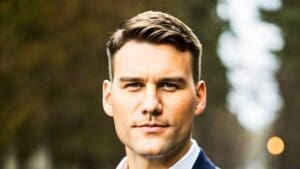Marcus Weller is a renowned AI entrepreneur and technology innovator who has significantly influenced the fields of augmented reality and artificial intelligence.
With a PhD in psychology, Marcus Welle has a deep understanding of human-computer interaction, which has informed his pioneering work, including the creation of the Skully motorcycle helmet, the first consumer-augmented reality product launched in 2012.
Throughout his career, Marcus has demonstrated exceptional leadership in founding and guiding tech companies, securing venture capital, and advocating for ethical standards in AI development. His international experience in science diplomacy, combined with his resilience in overcoming public and legal challenges, has earned him a respected reputation in the tech industry.
Currently residing in Austin, Texas, Marcus Weller continues to push the boundaries of technology while actively engaging with the local tech community and inspiring future innovators.
Who or what inspired you to pursue a career in your chosen field?
My journey to AI was a winding road with many detours along the way, which at the time I didn’t realize were all leading me to an inevitable destination. My work in AI now stems from a blend of my love for the brain and a lifelong passion for technology.
Growing up, I was always fascinated by the interplay of humans and technology—how people interact with technology and how technology interacts with us to make impossible things possible. It struck me in high school that the brain and the mind within it seemed to be the most complex structures that we knew of in the universe. It was a universe of complexity within itself. It seemed like a boundless expanse, and I felt destined to explore it.
Even earlier, I had this intense fascination with robots and computers, going all the way back to early childhood, living in a tiny apartment in St. Paul, Minnesota, with my mom and brother. I loved robot and computer movies like Short Circuit, Terminator, Robocop, and Blade Runner. I would try to build robots in my room from electronics lying around the house. Much to my mother’s dismay, no small electronics were safe from disassembly. We were of little means as a family, and these were my toys. I was fascinated by what made these things work and what made computers smart. This curiosity about the brain and technology eventually led me to my PhD in Psychology, where I specialized in human intelligence and data science. I also spent time at the University of Munich as a visiting researcher studying Cognitive Neuroscience.
The opportunity to study how humans interact with technology, combined with my experience working in Germany with the Humboldt Foundation as a Science Diplomat, crystallized my desire to bridge the gap between human needs and technological advancement. Both domains, human psychology and technology, seemed limitless, and I felt strongly that in their nexus lay many great discoveries waiting to be uncovered to unlock new possibilities for humanity. One of the most pivotal moments in my career was a motorcycle accident I experienced while living in Spain.
This incident inspired the idea for Skully, the first consumer-augmented reality product. The realization that technology could directly enhance human capability was a turning point for me, driving my commitment to creating technologies that improve lives.
Can you share a defining moment that shaped your career?
The defining moment in my career was a Wednesday night in May of 2012. I had a vivid dream about a motorcycle accident I had a year prior while living in Spain. In the dream, I was using a motorcycle helmet with a heads-up display that could project GPS directions and other vital information directly in front of the rider’s eyes like a hologram, eliminating the need to look away from the road. In the dream, it saved me from my accident, and the feeling was so powerful that it woke me up in the middle of the night with an overwhelming desire to build it.
That very moment led to the birth of Skully and my journey into the world of augmented reality and AI. The very next day, I woke up and felt like the little boy in Minnesota, excited to build something new from all the small electronics I could get my hands on. I ordered dozens of devices from Amazon and began, over the next few weeks, disassembling them, figuring out how they worked, and recombining them over the ensuing six months into a prototype of the augmented reality helmet that I experienced in my dream.
Once the first prototype was built, I nervously showed it to some of my mentors in Silicon Valley, who got together and rounded up $250,000 to invest in making it a reality. Over the next few years, we built and shipped to customers the world’s first augmented reality motorcycle helmet, eventually selling it in Harley-Davidson stores.
This moment was more than just the inception of an idea; it was the moment I fully realized the potential of combining my academic knowledge with my passion for technology. It set the course for my future endeavors, pushing me to explore how AI and technology could be used to solve real-world problems and improve human lives.
How would you describe your personal and professional values?
My personal and professional values are deeply intertwined and center around innovation, integrity, and impact. I believe in pushing the boundaries of what is possible, but always with a strong foundation for solving real human needs.
Integrity is at the core of everything I do, meaning a deep alignment with the needs of the people for whom we innovate and with the partners and people that make it possible. Nobody innovates alone. There are moments of inspiration that can truly move humanity forward, but the journey from inspiration to implementation is arduous and scary and requires a team of good people around you who share your passion for impact and progress.
Another key value is the impact. I am driven by a deep desire to create technologies that not only advance industries but also have a positive, lasting impact on society. This is reflected in my work in science diplomacy, where I focus on ensuring that AI and other emerging technologies are developed in ways that are equitable and beneficial to all.
What advice would you give your younger self?
If I could give my younger self any advice, it would be to embrace failure as a stepping stone to success. As a kid, I would constantly fail while trying to build cool things, and sometimes I would get really sad. Later, in the early stages of my career, I was often stopped in my tracks by obstacles, and in those moments, I would sometimes lament my naivety for even trying in the first place.
Overcoming that imposter syndrome was key to unlocking what I had to offer the world. I had to beat the fear of not being good enough to pursue my ideas. I did this by constantly learning, so my ability was never static; it was always in a state of development and growth. This led to solutions to the roadblocks and became a theme by which to live my life. Through my journey, particularly with Skully, I learned that failure is not the end—it’s an essential part of the process.
In 2016, we shipped hundreds of units to excited early adopter customers and landed a distribution deal with Harley Davidson, a dream partner. We were approached to sell the company, and just when the deal was set to go through to take Skully to the next level, some unscrupulous investors blocked the deal and pushed my brother and me out of the company we started. It was devastating. They had been going around us to try to sell the company without us the whole time. They failed, and another one of our investors that we had a relationship with brought the company back to us, and we ended up selling Skully after all.
The best part was that Skully, as if guided by its own internal GPS, found its way back home. The company that bought us was in Spain, the same place where I had the accident that set everything in motion all those years ago. It was a very hard road, but looking back, its return home was almost eerily predestined. Each setback is an opportunity to learn, grow, and come back stronger. I would also tell my younger self to cultivate patience and resilience, as the road to meaningful success is often long and filled with detours.
What personal or professional achievements are you most proud of?
I am most proud of the creation and success of Skully, despite the challenges and setbacks. The journey of turning an idea born out of a motorcycle accident into a groundbreaking product that captured global attention is something that continues to drive me because it showed me that thoughts can indeed become things. I am also proud of the work I’ve done in science diplomacy, particularly my efforts to influence global AI policy and ensure that emerging technologies are developed responsibly.
Additionally, launching Aionicml.com, my current AI venture focused on human-centered AI, stands out as a significant achievement. It represents the culmination of my experiences and learnings, and it’s a project that aligns deeply with my values and vision for the future of technology that benefits all of humanity.
How do you manage stress and maintain a healthy work-life balance to ensure overall well-being?
Managing stress and maintaining a healthy work-life balance is something I’ve had to learn over time. Given the high-pressure environments I’ve worked in, it’s been crucial to develop strategies to cope with stress. One of my main approaches is mindfulness and daily reflection combined with long morning walks.
This allows the mind to calm down and get back into a creative state. In this state, I find that I am more able to see solutions to problems without fighting cognitive distortions. Humans evolved as bipedal creatures. Walking [upright] is as core to who we are as intelligence. When we don’t walk, we get sick and stressed, which interferes with our ability to think and enjoy life. Research even backs this up, showing that people who walk for 30 minutes see a significant boost in mood and IQ that lasts up to three hours.
I start and end each day with a gratitude walk and goal-setting, which helps me stay grounded and focused on what I need to do to bring myself one step closer to my goals.
Diet is another critical component of my routine. I eat a plant-based diet these days, and I don’t drink alcohol. I’ve noticed over the years that if I feed my brain what it needs, it is there for me when I need it most. The brain is the highest-leverage tissue in the body; it can produce ideas that change your life in an instant, and if those ideas are big enough, they can change the world.
So it’s incumbent on us to take care of our brains so that they take care of us. After all, it is the most beautifully complex structure the universe has ever created. So I like to treat it that way. I haven’t always been so abstemious in my life. This is something I had to learn over the years, but I wouldn’t change the journey because it’s what led me to where I am today. One last point is about how crucial the support of family has been for me throughout my career and life.
After my first company, I resolved to be deliberate about making more time for my family and spending time with loved ones, particularly my mother and brother. They have been significant supporters throughout my life and career. The support of friends and family can be a deep source of unshakeable strength. It certainly has been for me.
How do you define success?
Success, to me, is about more than just achieving professional goals; it’s about making a meaningful impact and living in alignment with my values. It’s about creating technologies that advance humanity while also maintaining personal integrity and contributing positively to society.
Success is also deeply personal—it’s about being true to oneself, overcoming challenges, and remaining in a state of continuous learning. The best people and the best AI models have one thing in common: they continuously learn, and this becomes a source of strength and growth that can be used to solve problems for people and have a deep impact. Success for me is also about leaving a legacy of innovation, ethics, and the betterment of humanity that can guide innovators for generations to come.
Who is the one entrepreneur or business leader that you consider to be your greatest example and inspiration? Why?
Mark Zuckerberg is an entrepreneur who greatly inspires me. His ability to continually reinvent Meta (formerly Facebook) to stay at the forefront of innovation is remarkable. From pioneering social media to leading advancements in AI, spatial computing, and neural interfaces, Zuckerberg’s work spans multiple groundbreaking areas. His commitment to creating a coherent ecosystem of products and technologies that link together to form a unified user experience is something I deeply admire.
Moreover, Zuckerberg has shown resilience in the face of adversity. He has faced significant challenges and criticism throughout his career, but he continues to persevere and innovate. His recent focus on open-source AI and his willingness to invest billions in this endeavor align with my values as an AI entrepreneur committed to an equitable AI future. His journey is a powerful example of how to adapt, evolve, and continue to push boundaries, maintaining a clear vision for the future even in the face of setbacks.
Are there any charitable organizations or community service-oriented activities that you are involved in?
I am actively involved in mentoring aspiring entrepreneurs and young professionals, particularly in the fields of AI and technology. I volunteer my time at universities around the world, offering guidance and support to students and startups who are navigating the challenges of launching new ventures. Additionally, my work in science diplomacy often involves contributing to initiatives that promote ethical technology development and international cooperation, which is a way to contribute to a global community of innovators and the people who stand to benefit.
Thank you, Marcus Weller, for sharing your insights and experiences with us. Your journey is an inspiring example of innovation, resilience, and the drive to make a positive impact through technology. We appreciate your time and look forward to seeing the continued impact of your work in AI and beyond.

























